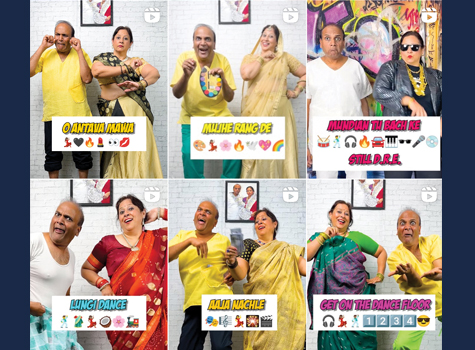
The first breast cancer awareness month was observed in the US in 1985. The initial goal was to get more women to get mammograms for early detection. Now the goals have expanded to include funding for research and support for those diagnosed with breast cancer.
According to the World Health Organization, breast cancer is the most common cancer among women worldwide, impacting 2.1 million women each year and also causing the greatest number of cancer-related deaths among women.
Recent research shows a strong link between lifestyle, weight and risk of cancer. Studies show diet and regular exercise play an important role in breast cancer prevention.
How a plant-based diet helps lower risk of breast cancer
The liver filters blood and pulls out unwanted hormone molecules including estrogens. These molecules are sent to the intestinal tract via the bile duct. If there is enough fiber in the diet, these fibers bind with the extra estrogen and help get rid of it along with the other waste – you literally flush out the unwanted excess hormones. If the diet is lacking in fiber, those molecules will be reabsorbed into the blood stream from the intestinal tract. The estrogen levels go up causing expansion of the uterus and the endometrial layer. The breast cells are affected increasing the risk of breast cancer.
The Four Steps to Beat Breast Cancer
Last year The Physicians Committee for Responsible Medicine teamed up with renowned cancer specialist Dr. Kristi Funk for a campaign to prevent breast cancer. They outlined these four steps:
• Choose a plant-based diet
• Exercise Regularly
• Limit/avoid alcohol
• Maintain a healthy weight
For more information: www.pcrm.org/letsbeatbreastcancer
Healthy Eating for Breast Cancer Prevention and Survival
Watch your total calorie intake
Choose foods that are nutrient dense and rich in fiber so they fill you up and keep you satisfied. These include whole vegetables, fruits, fiber-rich carbohydrates such as whole grains and beans.
• Be mindful of portion sizes at all meals and snacks.
• Eat small meals at regular intervals
• Avoid sugar and simple starches
• Drink adequate amount of water
• Avoid beverages with sugar, artificial sweeteners and colors
• Limit/avoid alcohol
Choose plant-based foods
• Eat a rainbow! Choose a wide variety of colorful vegetables and fruits
• Eat more vegetables
• Limit fruits to 1-3 servings per day depending on your calorie needs
• Include healthy fats from nuts and seeds and avoid animal based fats
• Include high fiber carbohydrates such as intact whole grains, beans and lentils, and high fiber starchy vegetables such as sweet potatoes
Limit sugars and simple starches
• Simple sugars and refined flour can cause weight gain and thus increase the risk of cancer
• Include high fiber whole grains and beans and non-starchy vegetables that have a lower glycemic load.
Eat whole fruits. Avoid juices and processed fruit products
Eat more fiber rich foods
Fiber is good for your health and may help with balancing your blood sugar, lower cholesterol, and improve your bowel function.
Fiber rich foods are known as pre-biotics and help improve the probiotic gut bacteria which may help improve mood and increase immunity.
Increase your fiber intake slowly and drink plenty of water.
For cancer prevention, it is advisable to consume 25 to 40 grams of fiber per day. You can get adequate amount of fiber by including daily:
2 cups of fruit
3-4 cups of non-starchy vegetables
2-3 cups of cooked whole grains such as oats, brown rice, millet, quinoa, bulgur, barley
½ -1 cup of beans, lentils, and other legumes
Sugar and Cancer
Question: Does sugar feed cancer?
Answer: Sugar directly does not increase cancer risk, but research shows that the increased insulin levels may increase growth of cancer cells. Therefore, it is advisable to limit processed, refined foods which will raise blood sugars and insulin levels. Bear in mind that the body processes all sugars in the same way. There is no difference between white sugar, brown sugar, maple syrup, molasses or honey.
Soy and Breast Cancer
Question: Are soy foods safe for breast cancer survivors, including women who were treated for estrogen receptor positive breast cancer?
Answer: Studies consistently show that compared with women who do not eat soy, women who regularly eat soy have lower breast cancer risk. Some of these studies also suggest that breast cancer survivors who consume soy foods have a lower risk of breast cancer recurrence compared with survivors who avoid soy. Soy foods do not contain estrogen. Avoid processed soy products and soy protein shakes. Include fermented soy products such as miso, tofu, and unsweetened non-GMO soy milk.
Info: www.vndpg.org/resources/vegetarian-dietitian-resources
———-
Parul Kharod, MS, RD, LDN is a registered dietitian and licensed nutritionist and works as a Clinical Dietitian with Outpatient Nutrition Services at WakeMed Hospital in Cary and Raleigh. She can be reached at parulkharod@gmail.com
Posted: Monday, October 12, 2020



